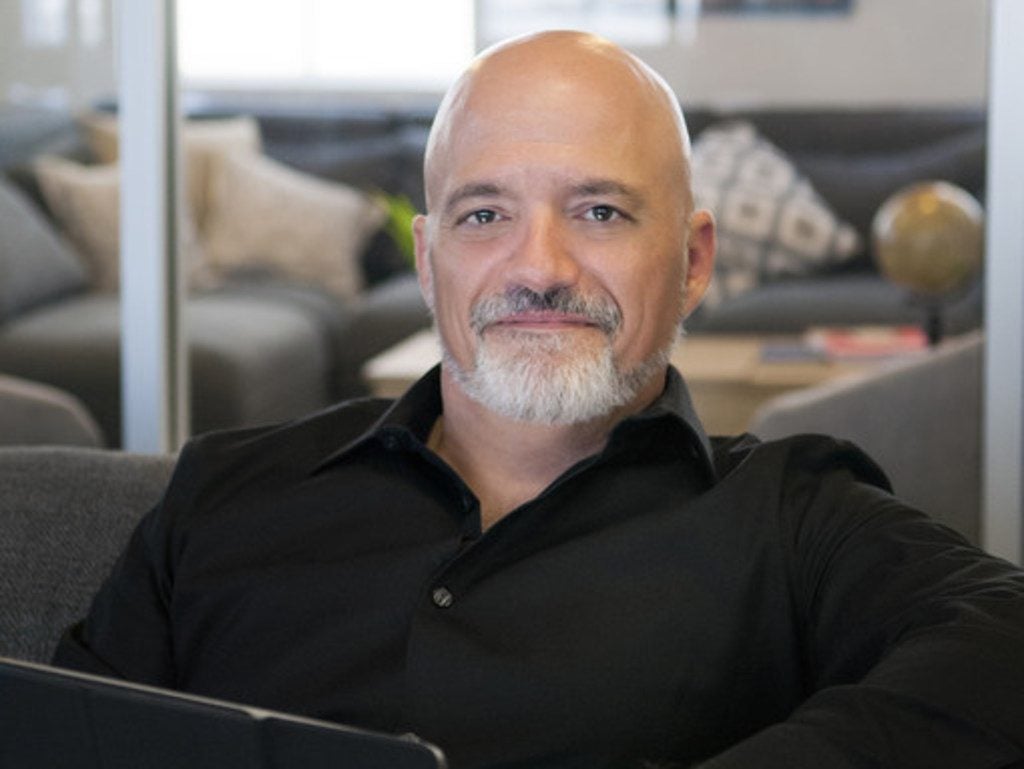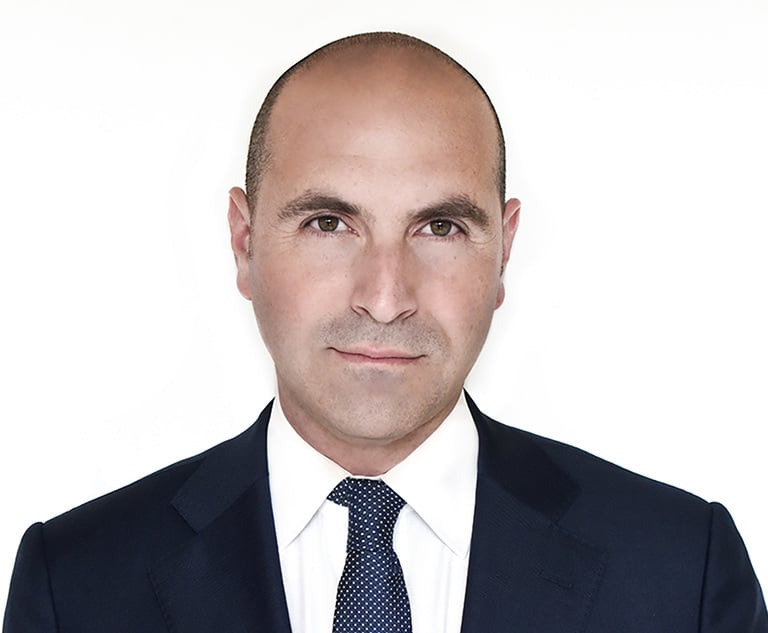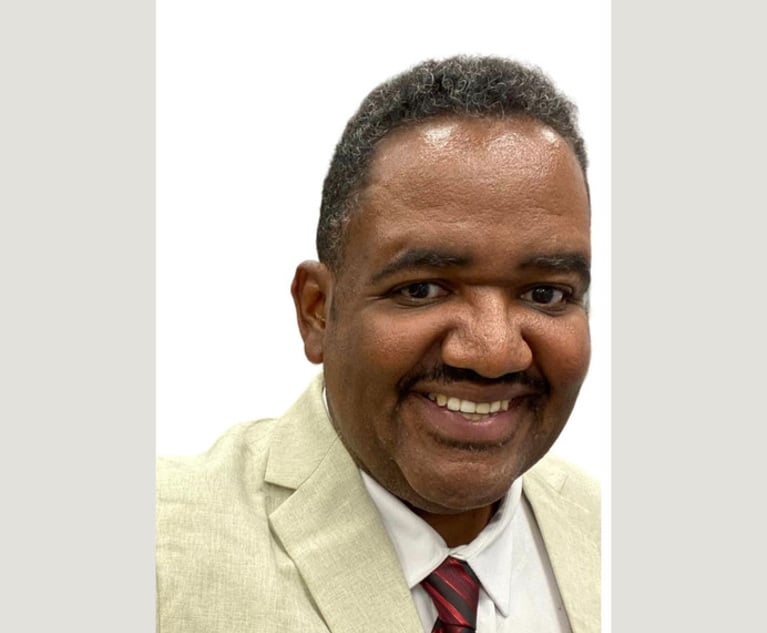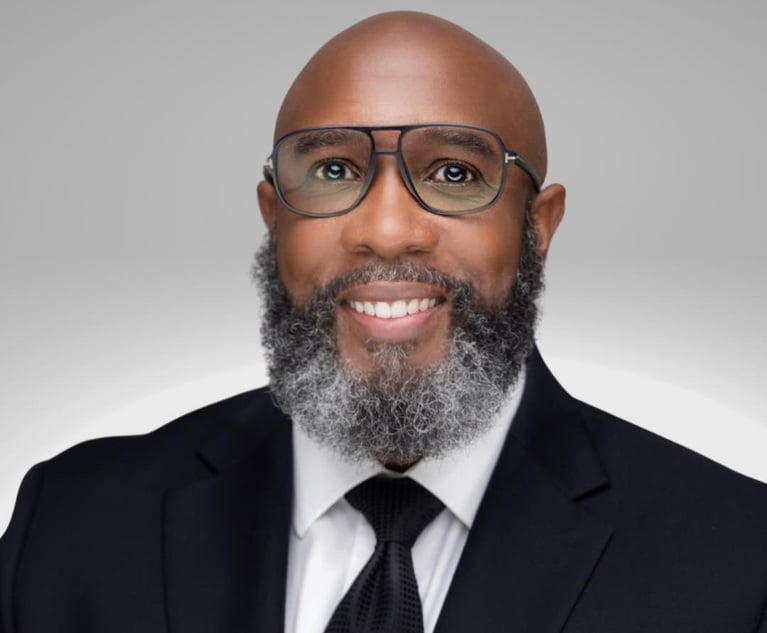Attorney Luis Salazar Looks to the Future of His Law Office and Practice
Whether in his handling of data privacy issues or the progressive character of his boutique law firm, the Coral Gables-based Big Law veteran has always tried to stay ahead of the curve.
October 04, 2019 at 04:05 PM
7 minute read
 Luis Salazar, founding partner of Salazar Law. Courtesy photo
Luis Salazar, founding partner of Salazar Law. Courtesy photo
Luis Salazar has never been one to flinch in the face of change. The Coral Gables attorney and Salazar Law founding partner has tackled several shifts over the course of his legal career, ranging from his practice focus to the locations where he's practiced.
Since 2012, the former Greenberg Traurig senior partner has occupied himself with the challenge of not only managing his own firm but redefining the culture and expectations associated with boutique law offices.
"I felt that that my team was practicing law the same way people practiced law 100-plus years ago," Salazar said of his departure from Big Law. The bankruptcy and data privacy specialist had been with Greenberg Traurig for more than a decade and felt the legal field had failed to keep pace with the technological advancements that had otherwise become commonplace.
In his own words, Salazar said he set out on his own to "reinvent the practice of law."
"I know you hear that a lot these days," he added. " I wanted to create a place where we can handle the same complex and difficult matters that we were handling at Big Law, but do it in a way that [was] more impactful, more efficient, and honestly, brought more joy and more fulfillment to every member of the team."
Salazar's ambition to scale the work capacity of a Big Law firm to just a handful of lawyers may have its roots in the rigor of his upbringing. Born in New York City to Cuban immigrant parents, Salazar honed his work ethic at his family's dry-cleaning business in Washington Heights. He held his position at the family-owned business from his early years all the way through his days as a student at Columbia Law School.
"Whenever I was not studying I was on my feet at that dry cleaners 12 hours a day, six days a week," he said. Salazar said his drive to pursue a living through lawyering derived largely from the values and experience he acquired working at his parent's business.
"I wanted to be in a profession where I would have that heavy human, person-to-person customer contact, and be able to interact with people heavily like I did at that small business," he said. "It seemed like that's what lawyers did all the time."
Upon graduating with his law degree in 1992, Salazar situated himself in New Jersey and joined the Cole Schotz law firm as an associate.
"I really loved the practice, told myself I would never leave," he said. Although Salazar enjoyed working with the firm and maintains he's still close with it, circumstances and opportunity began conspiring to force a change in scenery.
"Members of my family started talking about moving to Miami, so I started thinking, 'Well, maybe I should go along with,'" he recounted. Salazar was able to arrange an interview with Mark Bloom of Greenberg Traurig. Bloom, who's presently co-chair of the firm's global restructuring and bankruptcy practice, interviewed Salazar for a position within Greenberg Traurig's bankruptcy department.
Following a lunch with Bloom and other Greenberg Traurig lawyers in Grove Isle, Salazar said he was left smitten with Miami.
"The interview was in February, so in New Jersey it was in the 20s [degrees-wise], and in Miami we were sitting outside and the water was so spectacular," he said. "When I received the offer to work at Greenberg, it was the beginning of April and it had snowed. That morning I actually had to go and shovel my car out."
Beyond the appeal of working on cases as compelling as Florida-born actor Burt Reynolds' Chapter 11 bankruptcy, Salazar also distinguished his work by helping to pioneer the realm of data privacy. After writing an article about Toysmart, a company that went bankrupt and fell under Federal Trade Commission scrutiny for selling personal data information after pledging not to do so, Salazar was invited by the Senate Judiciary Committee to speak on how to manage selling data in bankruptcy proceedings.
"It's in the mid-2000s and dotcoms are booming, and it kind of opened my eyes to the fact that data privacy is really going to be an explosive area of growth," he said, noting he felt data privacy would someday be "present in everything we do." A decade onward, his bankruptcy practice and work assisting companies in crisis management is bolstered by consulting with companies that collect and traffic in data.
Salazar said controversies surrounding online entities such as Facebook and current trends signal an increased degree of regulation around data collection in the very near future.
"If you could rewind the clock five years back I'd say it's going to be a long shot to get some meaningful legislation that's going to have a global impact on data privacy," he said, noting much has changed in the intervening period. Referencing the EU's laws surrounding data privacy as well as initiatives taken by Brazil and California to protect consumers, Salazar said "the major economies of the world have enacted regulations and that's had an amazing ripple effect."
"Other states like New York and Washington and other states are threatening to kind of have similar laws to California," he added. "So suddenly there is a tremendous demand for compliance, for thoughtful intake of data, thoughtful use of data. I think those legislative changes have really sparked … a massive sea change in how data is taken in, managed and protected. What I'm seeing now among clients and in industry conferences is the demand for compliance advice, compliance talent, because everybody wants to have that. You always hear more about the outliers in the news, but I think you miss the sheer volume of compliance work that's being done in the privacy space on a daily basis."
Salazar has applied the forward-thinking attitude he's displayed in data privacy to the ethos of Salazar Law. The firm relies heavily on technology to streamline the workloads Salazar says would normally be given to tens of people at larger law firms. Although he acknowledges his firm's small size and flat corporate structure might not be for everyone, Salazar said he believes it's the future for his own practice and more law firms yet to be established.
"I still enjoy the fact that we can still innovate, try something different and be more agile than than a more traditional practice," he said. "I wouldn't say that I'll never go back to Big Law because I had a really great experience with the Greenberg Traurigs of the world … but my time in a smaller firm has made me a better lawyer and even more committed to my clients and their problems. It's been a wonderful experience for me, I love it, and I expect Salazar Law to be around for a long time."
Luis Salazar
Born: April 1967, New York City
Children: Luis, Maximo, Lucia
Education: University of Miami, MBA, 2003; Columbia Law School, J.D., 1992; cBA, 1989
Experience: Founding Partner, Salazar Law, 2012-present; Partner, Infante Zumpano Salazar, 2010-2012; Senior Partner, Greenberg Traurig, 1997-2010; Associate, Cole Schotz, 1992-1997
More attorney profiles:
He Will Rock You: Miami Lawyer Mark Meland Makes Deals by Day, Music by Night
Jason Domark Embodies an Easygoing Approach to Litigation
Attorney Ana Romes Applies a Lifetime of Stagecraft to the Legal Field
This content has been archived. It is available through our partners, LexisNexis® and Bloomberg Law.
To view this content, please continue to their sites.
Not a Lexis Subscriber?
Subscribe Now
Not a Bloomberg Law Subscriber?
Subscribe Now
NOT FOR REPRINT
© 2025 ALM Global, LLC, All Rights Reserved. Request academic re-use from www.copyright.com. All other uses, submit a request to [email protected]. For more information visit Asset & Logo Licensing.
You Might Like
View All
Growing Referral Network, Alternative Fees Have This Ex-Big Law’s Atty’s Bankruptcy Practice Soaring
5 minute read
Against the Odds: Voters Elect Woody Clermont to the Broward Judicial Bench
4 minute read
Miami Civil Judge Myriam Lehr to Say Goodbye to the County Court Bench
4 minute readTrending Stories
- 1Understanding the HEMS Standard in Trusts
- 2Mergers Are About People, Not Paperwork: Here’s Why
- 3Wachtell Partner Leaves to Chair Latham's Liability Management Practice
- 4Morris Nichols Partners to Be Involved With PLI Program
- 5How I Made Practice Group Chair: 'Cultivating a Culture of Mutual Trust Is Essential,' Says Gina Piazza of Tarter Krinsky & Drogin
Who Got The Work
J. Brugh Lower of Gibbons has entered an appearance for industrial equipment supplier Devco Corporation in a pending trademark infringement lawsuit. The suit, accusing the defendant of selling knock-off Graco products, was filed Dec. 18 in New Jersey District Court by Rivkin Radler on behalf of Graco Inc. and Graco Minnesota. The case, assigned to U.S. District Judge Zahid N. Quraishi, is 3:24-cv-11294, Graco Inc. et al v. Devco Corporation.
Who Got The Work
Rebecca Maller-Stein and Kent A. Yalowitz of Arnold & Porter Kaye Scholer have entered their appearances for Hanaco Venture Capital and its executives, Lior Prosor and David Frankel, in a pending securities lawsuit. The action, filed on Dec. 24 in New York Southern District Court by Zell, Aron & Co. on behalf of Goldeneye Advisors, accuses the defendants of negligently and fraudulently managing the plaintiff's $1 million investment. The case, assigned to U.S. District Judge Vernon S. Broderick, is 1:24-cv-09918, Goldeneye Advisors, LLC v. Hanaco Venture Capital, Ltd. et al.
Who Got The Work
Attorneys from A&O Shearman has stepped in as defense counsel for Toronto-Dominion Bank and other defendants in a pending securities class action. The suit, filed Dec. 11 in New York Southern District Court by Bleichmar Fonti & Auld, accuses the defendants of concealing the bank's 'pervasive' deficiencies in regards to its compliance with the Bank Secrecy Act and the quality of its anti-money laundering controls. The case, assigned to U.S. District Judge Arun Subramanian, is 1:24-cv-09445, Gonzalez v. The Toronto-Dominion Bank et al.
Who Got The Work
Crown Castle International, a Pennsylvania company providing shared communications infrastructure, has turned to Luke D. Wolf of Gordon Rees Scully Mansukhani to fend off a pending breach-of-contract lawsuit. The court action, filed Nov. 25 in Michigan Eastern District Court by Hooper Hathaway PC on behalf of The Town Residences LLC, accuses Crown Castle of failing to transfer approximately $30,000 in utility payments from T-Mobile in breach of a roof-top lease and assignment agreement. The case, assigned to U.S. District Judge Susan K. Declercq, is 2:24-cv-13131, The Town Residences LLC v. T-Mobile US, Inc. et al.
Who Got The Work
Wilfred P. Coronato and Daniel M. Schwartz of McCarter & English have stepped in as defense counsel to Electrolux Home Products Inc. in a pending product liability lawsuit. The court action, filed Nov. 26 in New York Eastern District Court by Poulos Lopiccolo PC and Nagel Rice LLP on behalf of David Stern, alleges that the defendant's refrigerators’ drawers and shelving repeatedly break and fall apart within months after purchase. The case, assigned to U.S. District Judge Joan M. Azrack, is 2:24-cv-08204, Stern v. Electrolux Home Products, Inc.
Featured Firms
Law Offices of Gary Martin Hays & Associates, P.C.
(470) 294-1674
Law Offices of Mark E. Salomone
(857) 444-6468
Smith & Hassler
(713) 739-1250







